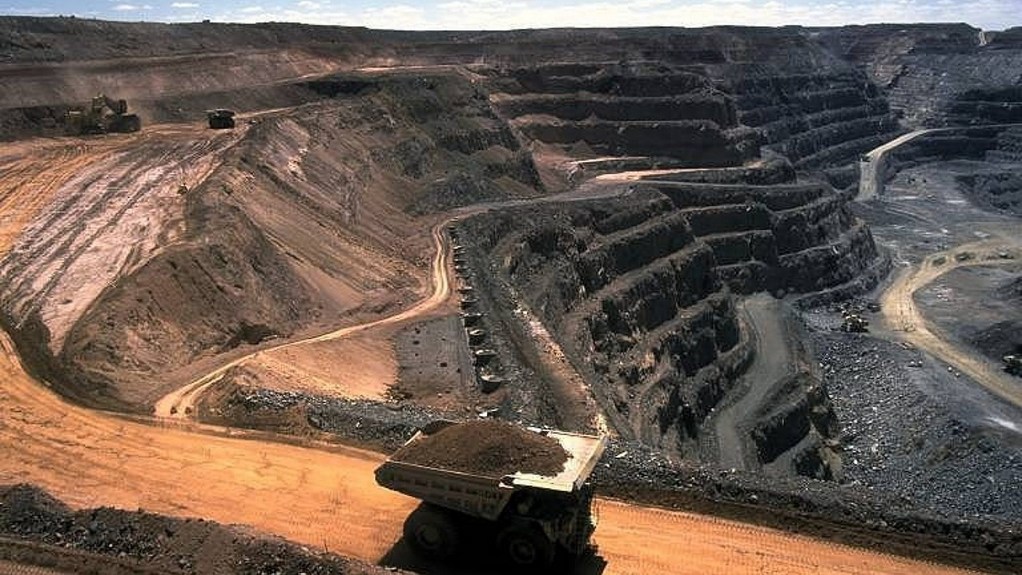The International Energy Agency estimates the world will need 40 times more lithium by 2040 to help meet the goals of the Paris Climate Agreement. There are concerns we won’t have enough: To satisfy that demand, we’ll need to open new mines or revive old ones.
Federal policymakers want that lithium to come from the United States. Gaston County west of Charlotte, once the center of the lithium industry, is expected to play a big role, as will other places around the country. The U.S. Geological Survey’s lithium deposits database shows potential sites from North Carolina to the West.
But with nearly every new proposed mine comes environmental concerns, setting up a climate versus environment conflict.
The Biden administration and Congress have made it a priority to develop a domestic supply chain for lithium and other “strategic minerals.” Most of the world’s lithium supply is processed in China. So the Inflation Reduction Act includes billions of dollars in tax credits to subsidize mines and processing facilities in the U.S., and to make EVs more affordable — but only if they meet standards for U.S.-produced materials.
Three Charlotte-area companies are key players in the lithium market. Albemarle Corp. of Charlotte and the startup Piedmont Lithium of Belmont have received federal grants to open or expand processing plants in North Carolina and Tennessee. Another Charlotte-based company, Livent, expanded its Gaston County processing plant last year.
The U.S. currently has only one active lithium mine, at Silver Peak, Nevada, operated by Albemarle. There, lithium is extracted by evaporating underground salt water in a process called lithium brine recovery. The U.S. Energy Information Administration says this mining technique could provide a reliable domestic supply of lithium.
Albemarle wants to double the mine’s output. But for now, it’s a small fraction of the lithium that the company produces. Most comes from mines in Chile and Australia.
To bring more lithium production back to the U.S., Albemarle and other companies are proposing new mines wherever lithium deposits are found. The most promising sites are in North Carolina and the Southwest — including Nevada, California and Utah.
We don’t develop mines the way we used to in the U.S. Tougher regulations and organized opposition mean you can’t just bring in the heavy equipment and start digging.
Mines in Gaston County, west of Charlotte, once supplied most of the world’s lithium. Lithium deposits run through the county in a mile-wide north-south band, known as the Carolina Tin-Spodumene Belt.
Spodumene is a mineral that contains lithium. It’s extracted as rock from open pits hundreds of feet deep. These mines operated for decades in the 20th century, until cheaper sources were found in South America and Australia.
Albemarle owns one of those old lithium mines, off Interstate 85 in Kings Mountain, North Carolina. It operated from the 1940s to the 1980s, when the company shifted production to overseas sources.
That open-pit mine is now a lake, surrounded by a hiking trail. But with the price of lithium rising with demand, Albemarle says it makes sense to reopen it. The company has made its pitch to neighbors in large and small public meetings and through a website touting its benefits.
Meanwhile, about a dozen miles north, a startup company called Piedmont Lithium wants to construct a mine and processing operation in a rural area that’s now mostly residential properties and farm fields. Piedmont wants to dig four open-pit mines averaging 500 feet deep and construct a lithium processing plant nearby.
A contractor for Piedmont Lithium operates a drill rig as the company tests for lithium deposits in Gaston County in 2019.
Some residents in the area have willingly sold their land to Piedmont — in some cases for millions of dollars.
But the mine also faces significant opposition from both neighbors and local officials. They worry about the loss of their way of life, environmental damage and threats to streams flowing through the area.
The company still needs a state mining permit, but has yet to give state mining officials plans for treating wastewater from the site.
And even if Piedmont gets the permit, it will still need county zoning approval.
County Commission Chair Chad Brown told me last fall: “With the information I have right now, I probably would not call for a vote on this. I would have to have tons of more information just for the environmental side, [including] air quality, water quality, different things like that.”
The company acknowledges that approvals have come more slowly than expected. “Our plan, our hope, is that we’ll be in production in Carolina in 2026, and will be fully permitted and approved and funded sometime in 2024,” Phillips said.
Another project facing organized opposition is a massive mine planned by Lithium America for Nevada’s Thacker Pass. The company recently won a round in court when a federal judge declined to halt the project.
Tags: Biden Administration, EVs, Lithium, Mining, US

Recent Posts
ARIPL to power up 700 MWp solar project
Basin Electric Power CO2 capture projects receive funding
FHWA announces grants to help reduce truck air pollution near ports
Industry leaders urge realism in green hydrogen push
Oslo implements bold measures to reduce dependence on motor vehicles
IHI admits improper alteration of data over 4,000 marine engines
Shipowners welcome 40% production benchmark
MPCC opts for 2 methanol dual-fuel ships